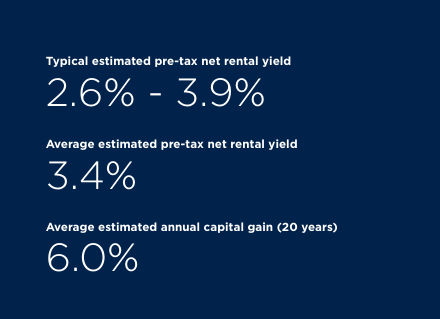
Residential -
Residential investment report Q2 2024
New Zealand’s residential investment market in 60 seconds.
Wider residential market starting to recover
Independent forecasters are typically predicting house prices will rise over 2024. Strong migration and constrained housing supply are likely to continue to drive long-term price growth.
Law changes support investors
Policies put in place by the new government, such as restoring mortgage interest deductibility for rentals and wider termination rights for landlords, will increase demand from investors in the medium term.
Interest rates the one to watch
Commentators typically believe that interest rates have peaked and will reduce over time. Inflation has been trending downwards, but some commentators remain concerned that high core inflation could mean interest rates have to stay higher for longer. Interest rates remain a key pressure point for buyers so the future pathway for rates will likely be the main influence on house prices in the short-term.
Surging migration boosting rents
Surging migration is adding pressures to the housing market. This is mainly impacting the rental market given migrants tend to rent first and will typically be subject to the foreign buyer ban. Rising rents will continue to place pressure on first home buyers to purchase and will encourage more activity by investors.
Investors still in a holding pattern
Whilst government policies have generally increased demand from investors, actual acquisition activity remains relatively subdued due to the high interest rate environment. First home buyers and movers remain the dominant buyer groups in most markets.
Impact of new lending rules is unclear
The RBNZ is in the process of implementing Debt to Income ratios on residential lending. These policies are unlikely to significantly impact the market in the short-term because buyers will already be constrained by high interest rates.
